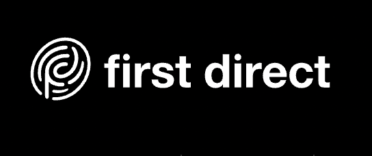
What is a mortgage offer?
A mortgage offer is confirmation from the lender that you have satisfied all its lending criteria for the amount of mortgage loan that you need. After you apply for a mortgage the lender will usually instruct and carry out identity, affordability and property checks. These will usually include a valuation of the property you want to buy and property searches through a conveyancer. Your lender will also request evidence to support your personal information including your identity and earnings and will almost always include a credit check.
If you meet the qualifying criteria for the mortgage you need, the lender will confirm this with a formal mortgage offer. In most cases, the mortgage will only form part of the property purchase price - you will usually top this up with a deposit to make up the remainder, although some no-deposit mortgages may cover all of the purchase price.
The mortgage offer will detail:
- The amount that will be lent
- The term over which the mortgage will be repaid
- The interest rate that will be charged
- The type of mortgage - capital and interest or interest-only
Your mortgage offer will also detail the property information including the valuation and rebuild value. You should also find the finer details such as whether you can overpay, whether there are any early repayment charges and any other fees payable upon the transfer of funds.
How long does it take to get a mortgage offer?
Mortgage offers can be issued in as little as a few weeks but can also take longer depending on how much information the lender requires and how readily this is available. Often a mortgage in principle - usually referred to as an Agreement In Principle (AIP) - can be obtained quickly with some lenders even offering an AIP instantly following a simple online application. A mortgage agreement in principle isn't a full offer of a mortgage and is subject to further checks and verifications before a formal mortgage offer is made to you.
A full and formal mortgage offer is usually made after the lender has carried out:
- Identity verification checks - a copy of your passport/driving licence and correspondence proving your identity and address.
- Credit checks - a credit report from Experian, Equifax or Transunion will detail whether you make all your payments on time and what you owe to creditors as well as highlight any missed payments, County Court Judgements (CCJ) or Individual Voluntary Arrangements (IVA).
- Affordability checks - payslips or accounting records will be checked to verify your income as well as bank statements that will confirm your regular expenses so that your income and affordability can be assessed.
- A valuation of the property - the lender will require a valuation of the property to ensure that the purchase price is fair.
- Property checks with Land Registry - these checks will uncover any risk associated with the property, including the risk of flooding or subsidence. It may also include whether any development in the surrounding area will impact the property and its value.
Mortgage offers are dependent on a satisfactory outcome of all the above checks and each lender will assess these against its specific lending criteria before issuing a full mortgage offer. It is useful to understand the lending criteria before you complete your mortgage application as a declined mortgage application can impact your credit score, which could affect a subsequent mortgage application. Generally, it will take between 2-10 days to get a mortgage offer after the valuation is completed.
What happens after a mortgage offer is issued?
Once you receive your mortgage offer, your solicitor will liaise with the sellers and any other parties in the house purchase chain to agree on the exchange of contracts and the date that you will complete the purchase. You will be required to sign the relevant documentation and it is wise to ensure that your deposit is ready to transfer at this point.
If you are in a rental property, you may wish to notify your landlord to allow you to end your rental contract in time for the move - completion dates can be delayed so do be careful not to leave yourself without a place to live by giving notice to your landlord too soon.
How long does a mortgage offer last?
Your mortgage offer is usually valid for between 3 and 6 months depending on your lender and you can find this information in the terms and conditions that you receive.
It is important to note that some lenders will start counting the valid period from the date that you complete your mortgage application while others count from the date that the mortgage offer is made to you.
Mortgage offer period by lender
| Lender | Mortgage offer valid for | Agreement in principle valid for |
| Lloyds Bank | 6 months | 3 months |
| Santander | 6 months | 60 days |
| Natwest | 6 months | 30 days |
| Barclays | 6 months | 90 days |
This information is based on a new mortgage application and some types of mortgages offers may be subject to a different validity period
Can you extend a mortgage offer?
Yes, in most cases a mortgage offer extension is possible and may even become necessary if the completion of your house purchase is delayed. You should, however, check this with your lender ahead of the date your mortgage offer expires.
Your particular mortgage deal may no longer be available and an extension to your mortgage offer could result in a revised mortgage deal for you to consider.
Most lenders will ask for confirmation that your circumstances have not changed since you applied for your mortgage. A material change to your income or outgoings could affect your lender's decision to extend your mortgage offer and your lender may ask for evidence to support your application to extend.
Can a mortgage offer be withdrawn?
Yes, mortgage offers can be withdrawn but only in very rare circumstances - they are not legally binding. Having carried out all the checks, lenders are unlikely to withdraw a mortgage offer unless there is a change to your financial circumstances or if adverse information about the property comes to light before funds are transferred.
In very rare cases, a lender may withdraw a mortgage offer in light of an unprecedented shift in the market that makes it unviable for them to lend.





